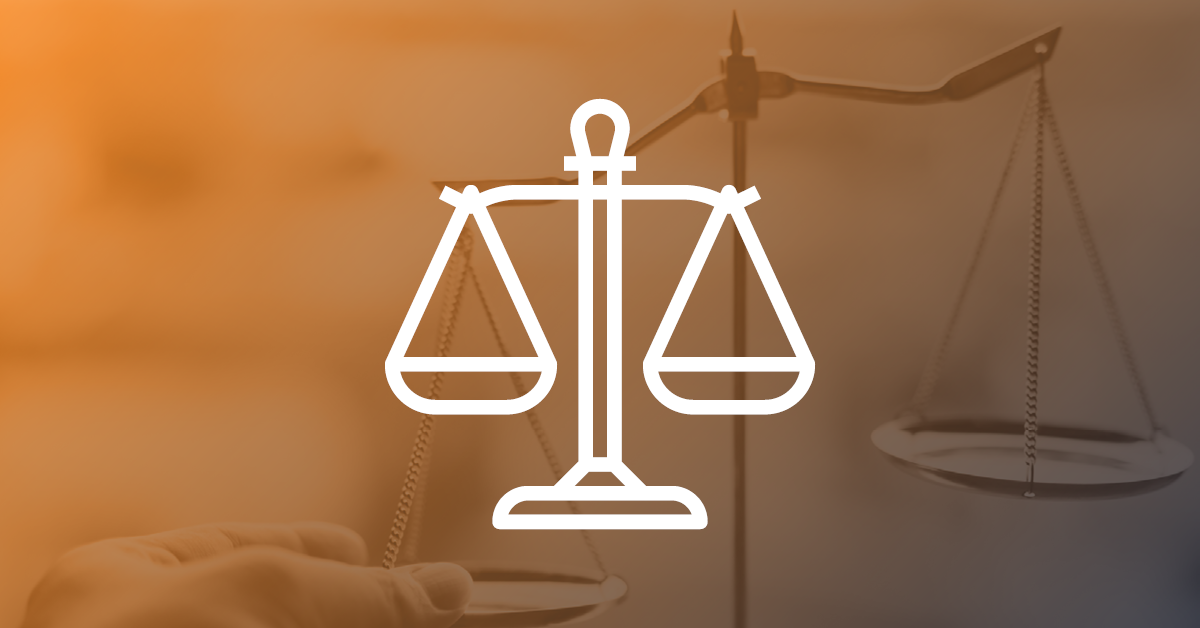Challenges and Opportunities in Legal Training
Navigating the evolution of legal education in an era of rapid technological and societal change.
The Evolving Landscape of Legal Training
Legal training stands at a critical crossroads, facing unprecedented challenges while also embracing remarkable opportunities for innovation and growth. The traditional approaches to legal education that served previous generations of lawyers are increasingly insufficient in preparing today's legal professionals for the complex, technology-driven, and globally interconnected practice environments they will encounter.
Key Factors Reshaping Legal Training
Technological Disruption
Artificial intelligence, legal tech, and automation are fundamentally changing how legal work is performed, requiring new skills and competencies from legal professionals.
Globalization
Cross-border transactions, international regulations, and multicultural environments demand legal professionals who can navigate diverse legal systems and cultural contexts.
Client Expectations
Modern clients expect business acumen, industry knowledge, and practical problem-solving abilities alongside traditional legal expertise.
Regulatory Changes
Evolving regulations, especially in the UAE and Gulf region, require legal professionals to be adaptable and committed to continuous learning.
At Al Mithaq Institute, we recognize that these transformative forces necessitate a reimagining of legal training approaches. Our programs are designed to address both the challenges and opportunities in this dynamic landscape, with a particular focus on the unique context of the UAE legal system and the wider Middle Eastern legal environment.
Core Challenges in Contemporary Legal Training
Several significant challenges face legal education institutions and professionals seeking quality training in today's environment. Understanding these challenges is essential for developing effective solutions.
Bridging Theory and Practice
Perhaps the most persistent challenge in legal training is the gap between theoretical knowledge and practical application. Traditional legal education often emphasizes doctrinal learning and theoretical frameworks without sufficient opportunities to apply these concepts in realistic practice scenarios. This disconnect can leave newly trained legal professionals struggling to translate their knowledge into effective client service.
Technology Integration
Legal practice is increasingly technology-dependent, with AI-powered research tools, case management software, e-discovery platforms, and blockchain applications becoming standard. Many legal training programs struggle to integrate these technologies effectively into their curricula, creating a skills gap for graduates entering modern practice environments.
Interdisciplinary Knowledge
Today's complex legal problems often require understanding beyond pure law - incorporating elements of finance, technology, psychology, and business. Legal training must equip professionals with this cross-disciplinary perspective while maintaining depth in legal principles and reasoning.
Keeping Pace with Legal Evolution
The rapid pace of legal change in areas such as data protection, cybersecurity, financial regulations, and environmental law presents a significant challenge for legal training providers. Curricula must be continuously updated while ensuring fundamental principles remain at the core.
Financial Accessibility
Quality legal training can be expensive, creating barriers to entry for many promising individuals. Balancing affordability with the resources needed to provide comprehensive, high-quality education remains a persistent challenge.
Al Mithaq Institute addresses these challenges through innovative program design, technology integration, experienced practitioners as instructors, and flexible delivery models that make quality legal training more accessible to professionals at various career stages.
Emerging Opportunities in Legal Training
Despite these challenges, the current landscape offers unprecedented opportunities to transform legal training for the better. Forward-thinking institutions are leveraging these opportunities to create more effective, relevant, and accessible educational experiences.
Experiential Learning Revolution
Simulation-based learning, clinical legal education, and problem-based instructional approaches offer powerful opportunities to bridge the theory-practice gap. These methods immerse learners in realistic scenarios that develop practical skills while reinforcing theoretical understanding.
Technology as Training Tool
Advanced learning technologies offer unprecedented opportunities for realistic simulation, personalized learning paths, and access to expertise regardless of location. Virtual reality courtroom simulations, AI-powered practice exercises, and sophisticated learning management systems are transforming how legal skills are acquired.
Modular and Customizable Learning
The increasing diversity of legal career paths creates opportunities for more tailored learning experiences. Modular courses, specialized certificates, and personalized learning paths allow legal professionals to develop precisely the skills most relevant to their career goals.
Global-Local Integration
The opportunity to blend global best practices with deep understanding of local legal contexts is particularly relevant in regions like the UAE. Training programs can now leverage international expertise while ensuring graduates are deeply versed in the specifics of local legal frameworks.
At Al Mithaq Institute, we are embracing these opportunities through innovative program design. Our Legal Training diplomas combine cutting-edge teaching methodologies with deep expertise in UAE and Middle Eastern legal systems, creating uniquely valuable learning experiences for legal professionals at various career stages.
Al Mithaq's Approach to Legal Training
Drawing on our understanding of both the challenges and opportunities in contemporary legal training, Al Mithaq Institute has developed a distinctive approach that prepares legal professionals for success in today's complex practice environment.
Our Training Philosophy
Al Mithaq Institute's legal training programs are built on a philosophy that balances theoretical rigor with practical application, technological literacy with fundamental legal principles, and global perspectives with local expertise. We believe effective legal training must:
- Be practice-oriented while maintaining theoretical depth
- Integrate technology as both a subject and a teaching tool
- Develop interdisciplinary skills relevant to specific practice contexts
- Foster ethical reasoning and professional responsibility
- Provide contextual understanding of the UAE legal system
Key Features of Our Legal Training Programs
Practitioner-Led Instruction
Our courses are taught by experienced legal practitioners who bring real-world insights and current practice knowledge into the classroom.
Simulation-Based Learning
Participants engage in realistic legal scenarios, from contract negotiations to courtroom advocacy, developing practical skills in a supportive environment.
Technology Integration
Training in relevant legal technologies is integrated throughout our programs, ensuring graduates are comfortable with the tools used in modern practice.
Specialized Concentrations
Our programs offer specialized tracks in high-demand areas such as commercial law, criminal law, intellectual property, and international law.
UAE Legal System Focus
Programs are designed with deep understanding of the UAE's legal framework, ensuring graduates can apply their skills effectively in local contexts.
Flexible Delivery Models
Options including evening classes, weekend intensives, and blended learning approaches make quality legal training accessible to working professionals.
This comprehensive approach ensures that graduates of Al Mithaq's legal training programs are equipped not just with knowledge of legal principles, but with the practical skills, technological literacy, and ethical foundation needed for success in today's challenging legal environment.
Legal Training Programs at Al Mithaq Institute
Al Mithaq Institute offers a diverse portfolio of legal training programs designed to address various aspects of legal practice and meet the needs of professionals at different career stages.
Criminal Law Diploma
This comprehensive program covers substantive criminal law principles, procedural rules, and specialized topics such as cybercrime and financial crimes. Participants develop skills in case analysis, defense strategy formulation, and criminal advocacy.
Commercial Law Diploma
Focusing on business-related legal areas, this program covers corporate law, commercial transactions, securities regulation, and dispute resolution. Participants gain practical skills in contract drafting, commercial negotiations, and corporate governance.
Legal Consultancy Skills Program
This specialized program develops the core skills needed for effective legal consultation, including client interviewing, legal analysis, risk assessment, and strategic advice formulation. Particularly valuable for in-house counsel and legal advisors.
UAE Law Fundamentals
Designed for legal professionals new to the UAE, this program provides comprehensive understanding of the UAE legal system, including civil law foundations, court structure, procedural rules, and recent legislative developments.
Contract Drafting and Legal Memorandums
This skills-focused program develops advanced capabilities in drafting various types of contracts, agreements, and legal documents. Participants practice drafting, reviewing, and negotiating agreements while learning to anticipate and address potential issues.
All legal training programs at Al Mithaq Institute are accredited by the Knowledge and Human Development Authority (KHDA) in Dubai, ensuring they meet rigorous educational standards. Our programs are available in both English and Arabic, with scheduling options designed to accommodate working professionals.
Future Trends in Legal Training
As we look toward the future, several emerging trends will likely shape the evolution of legal training and education. Al Mithaq Institute continuously monitors these developments to ensure our programs remain at the cutting edge of legal education.
Key Trends Shaping the Future of Legal Training
Increased Technology Integration
The integration of AI, blockchain, and other advanced technologies into legal practice will continue to accelerate, requiring legal training that builds both technical literacy and the ability to navigate ethical and practical implications of these tools.
Emphasis on Specialized Expertise
As legal practice becomes more specialized, training programs will increasingly offer focused tracks that develop deep expertise in specific practice areas, while still ensuring graduates understand how their specialty connects to broader legal contexts.
Interprofessional Education
Training that brings together legal professionals with experts from other fields—such as business, technology, healthcare, and public policy—will become more common, reflecting the increasingly interdisciplinary nature of legal work.
Competency-Based Assessment
Traditional knowledge-based assessments will increasingly be supplemented or replaced by competency-based evaluations that measure a learner's ability to perform real-world legal tasks and demonstrate practical skills.
Lifelong Learning Emphasis
The rapid pace of legal change will necessitate a shift toward continuous learning models, with shorter, more focused courses that allow legal professionals to regularly update their skills throughout their careers.
Al Mithaq Institute is committed to embracing these trends while maintaining the core values that make our legal training programs effective. By continuously evolving our curriculum, teaching methods, and delivery formats, we ensure our graduates are prepared not just for today's legal practice environment, but for the changes they will encounter throughout their careers.
Conclusion: Embracing the Evolution of Legal Training
The challenges and opportunities in legal training reflect broader transformations in the legal profession itself. As practice environments become more complex, technology-driven, and interdisciplinary, legal education must evolve to prepare professionals who can thrive in these changing circumstances.
At Al Mithaq Institute, we believe effective legal training in today's environment must balance several key elements: theoretical knowledge with practical application, technological fluency with fundamental legal principles, specialized expertise with interdisciplinary understanding, and global perspectives with local context.
Our commitment to innovative, practice-oriented legal training has established Al Mithaq Institute as a trusted provider of legal education in the UAE. Through continuous evolution of our programs, methodologies, and technologies, we strive to ensure that graduates are not merely informed about legal principles, but genuinely prepared to apply them effectively in the complex environments they will encounter.
Frequently Asked Questions
Who should attend Al Mithaq's legal training programs?
Our programs serve diverse audiences, including recent law graduates seeking practical skills, experienced lawyers looking to specialize or update their knowledge, legal consultants, corporate counsel, and professionals whose work involves significant legal elements.
Are Al Mithaq's legal programs recognized by employers?
Yes, our KHDA-accredited programs are widely respected by law firms, corporate legal departments, government agencies, and other organizations throughout the UAE and broader region.
How do your programs balance theory and practice?
Our programs integrate theoretical foundations with extensive practical application through case studies, simulations, drafting exercises, and problem-based learning activities led by experienced practitioners.
Can working professionals accommodate your training schedule?
Yes, we design our programs with working professionals in mind, offering evening and weekend classes, intensive modules, and blended learning options that combine in-person and online components.
Ready to advance your legal career?
Explore Al Mithaq Institute's comprehensive legal training programs.







